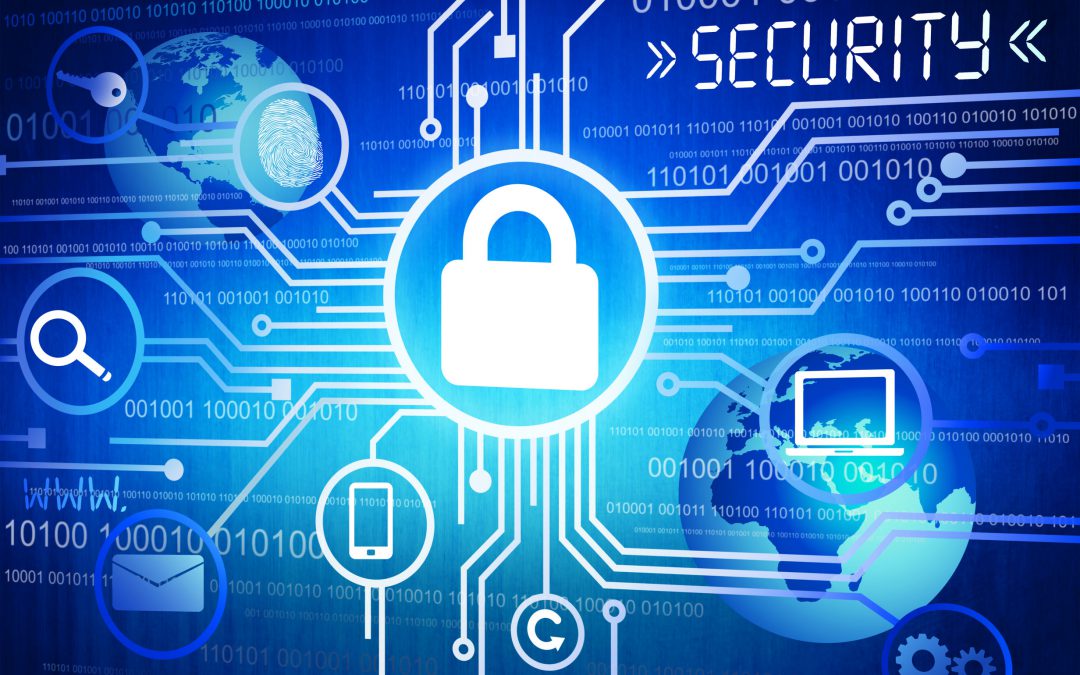Welcome to the year 2018. Here’s everything you need to know:
1. Everyone is super into cryptocurrency, despite the fact that not everyone (read: this author) is entirely sure what it is or how it works. I mean, is it, like made-up money? Or what exactly is its deal? Totes asking for a friend.

2. A new film in the Star Wars series is being released later this year. The latest installment in the iconic space western franchise is called Solo, and will centre around the titular character played by Harrison Ford in the original films.
And that’s about the gist of it. So, basically, space money and space cowboys.
One issue that is a lot more concrete and a whole lot closer to our own solar system is that of crime. And yes, despite its somewhat ethereal and mysterious nature, cryptocurrencies such as Bitcoin can totally be stolen. In fact, there’s even been cases of cyber criminals demanding ransom to be paid in Bitcoin! What a time to be alive.
Like the in-laws that arrived a week before Christmas and are still squatting in your living room well into January, crime in its various permutations appears to be here to stay. With this in mind, your good friends at CENTURION have put together a helpful list of the top 5 ways to be more secure in 2018.
1. Practice mindfulness

Believe it or not, the concept of “mindfulness” – of being fully present and “in the moment” – isn’t just reserved for the yoga class or for extra credits to pass that elective you need to finish your degree.
Psychologists and therapists often teach mindfulness to help their patients deal with anxiety and “runaway thoughts”, but being fully aware and conscious of your surroundings can be a useful tactic when it comes to staying safe and secure.
Whether you are withdrawing cash at an ATM or coming to a stop at a traffic light, it is very important that you survey your immediate surroundings for possible threats to your security. If you need to bring your vehicle to a standstill in a high-risk area, keep your doors and windows closed and locked, turn down the volume on your car radio, and consider keeping your vehicle in first gear so that you can make a getaway should the need arise.
2. Cultivate and maintain good security hygiene

In other words, get into the habit of living more securely. Develop and perfect your daily security rituals – for example securing the windows before bedtime, arming the alarm, checking that the CCTV system is working, etc. – and ensure that everyone in the household knows what to do in the event of a breach.
3. Work towards building a secure community
In the same way that it takes a village to raise a child, it takes a community to instill a sense of security and peace of mind in those that are part of it. With all the technology at our disposal – including smartphones, mobile applications, the Internet and social media – it’s easier than ever before to be part of the movement to create a secure community.
Joining your local community policing forum is one of the many ways in which you can do your part for community safety, as well as stay abreast of crime trends in your area.
4. Make online security a priority in 2018
Cyber crime is becoming increasingly problematic and widespread as more and more people are embracing the convenience of online banking, not to mention the tidal wave of investors currently trading in cryptocurrency such as the aforementioned Bitcoin.
For all its myriad benefits, the online trading environment has created a fertile breeding ground for cyber criminals, making it essential that you are au fait with online security best practice. Below are some tips for keeping your information secure online:
5. Embrace technology
Far from being the dystopian future envisaged by countless science fiction writers and movie makers – one ruled by sentient machines that have conspired to enslave humanity a la Terminator – we live in a world in which technology has evolved to be one of our most powerful allies.

Nowhere is this more evident than in the ever-evolving field of security technology, characterised as it is by remarkable innovations and developments designed to help us beat – or at least combat – the scourge of crime.
Innovations such as GSM access control – a novel system that utilises mobile network technology to enable you to monitor and control your home from your phone – have made it possible to take peace of mind with you wherever you go, and is putting sophisticated access control at the fingertips of the average homeowner.

Reliable, advanced home security is no longer reserved for the rich elite with their high walls like palatial Tuscan prisons, their monocles and snifters of French cognac (those are rich people things, right?). Thanks to integration with everyday appliances such as cellphones, security technology is becoming increasingly accessible to the wider public.
A staple of domestic access control, gate motors have undergone remarkable improvements in terms of functionality in recent years, and now offer homeowners a much more fully-rounded security package, with certain models boasting highly advanced features such as Intruder-detection Alarms and time-barring.
To summarise, staying secure in 2018 will require a complete mindset change and a holistic approach to personal safety that combines vigilance, knowledge and education and, of course, technology.









